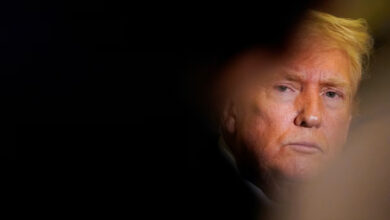Muscat—Foreign Minister Ahmed Aboul Gheit concluded a tour of the Gulf yesterday after visiting the United Arab Emirates, Kuwait, Oman, and Bahrain. Aboul Gheit met with leaders and ministers of the Gulf states and signed a number of agreements designed to boost economic cooperation between Egypt and the Gulf. He also discussed Iran’s nuclear program with Gulf leaders.
Egyptians working in the Gulf was a common theme of the meetings, with much of Aboul Gheit’s work focused on how to protect Egyptian expatriates from the consequences of the global financial crisis and the recent economic tumult in Dubai.
The purpose of the tour, according to the Foreign Ministry, was to reinvigorate relations between Egypt and the Arab Gulf states, which are important to Egypt’s economy. The tour also served as an indirect response to local calls for reconsidering Egyptian-Arab ties after the events that followed the Egypt-Agleria World Cup qualifying matches, which resulted in violence and strained relations between the two countries.
Aboul Gheit stressed that the timing of his tour was not meant to imply any particular message, but some of the minister’s statements in Bahrain appeared to be aimed at Iran.
"Egypt supports Bahrain against any external threat," Aboul Gheit said, in a veiled reference to Bahrain’s disputes with neighboring Iran, which claims that the island of Bahrain is Iranian territory.
During a stop in Muscat, Aboul Gheit was anxious to emphasize the strong ties between Egypt and Oman. He said that the relationship between the two countries is governed by cordiality, fraternity, and full cooperation. He also stressed that Egypt never forgets Oman’s stances over the last three decades. "We work on reinforcing the relationships, and each country fulfill their duties on the Arab arena," the foreign minister said.
Egypt appears especially concentrated on boosting the ties with Oman, which Medhat el-Qady, Egypt’s ambassador in Muscat, described as one of the closest states to Egypt. He told Al-Masry Al-Youm that he is lucky to work in Oman, given the distinguished bilateral relationships between the two states.
Iran’s nuclear aspirations were discussed at all four stops on Aboul Gheit’s tour.
Aboul Gheit stressed in a press conference in Manama, Bahrain that he discussed Gulf security with the king of Bahrain, and that the discussions shifted towards the topic of Iran’s nuclear program, "which is very sensitive to Iran, a state with influence on regional and international politics that desires to proceed with nuclear activities for peaceful purposes."
He also confirmed that Iran is a signatory of the international nuclear non-proliferation treaty and has the right to use the energy for peaceful purposes. "But at the same time [Iran] has to make sure not to lose the confidence of the international community." Aboul Gheit added that Israel, unlike Iran, has not signed the non-proliferation treaty.
Translated from the Arabic Edition.




